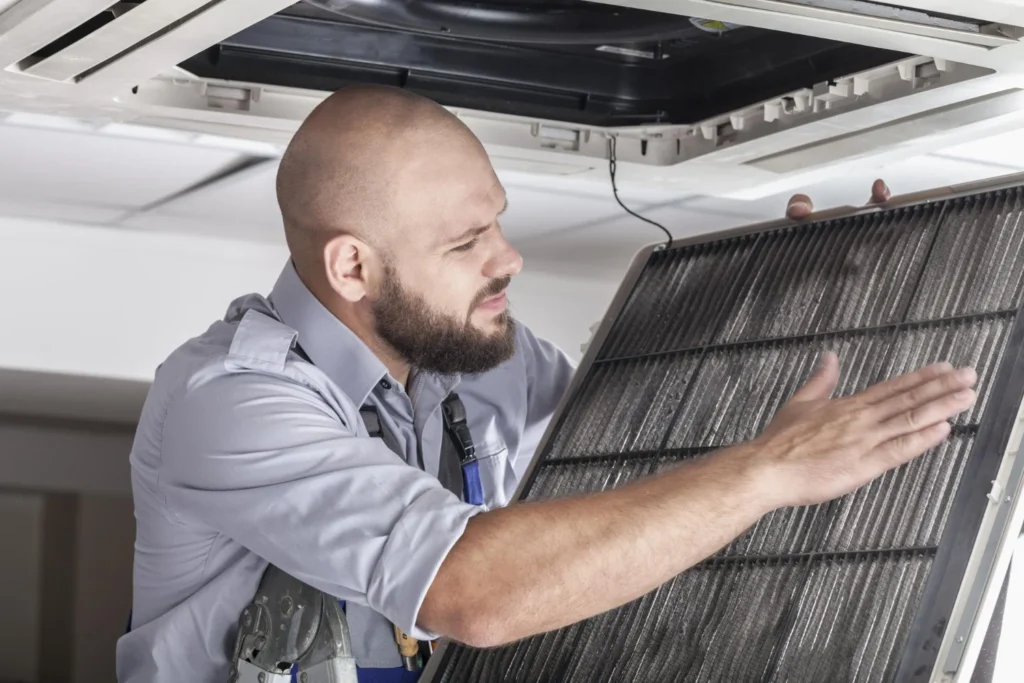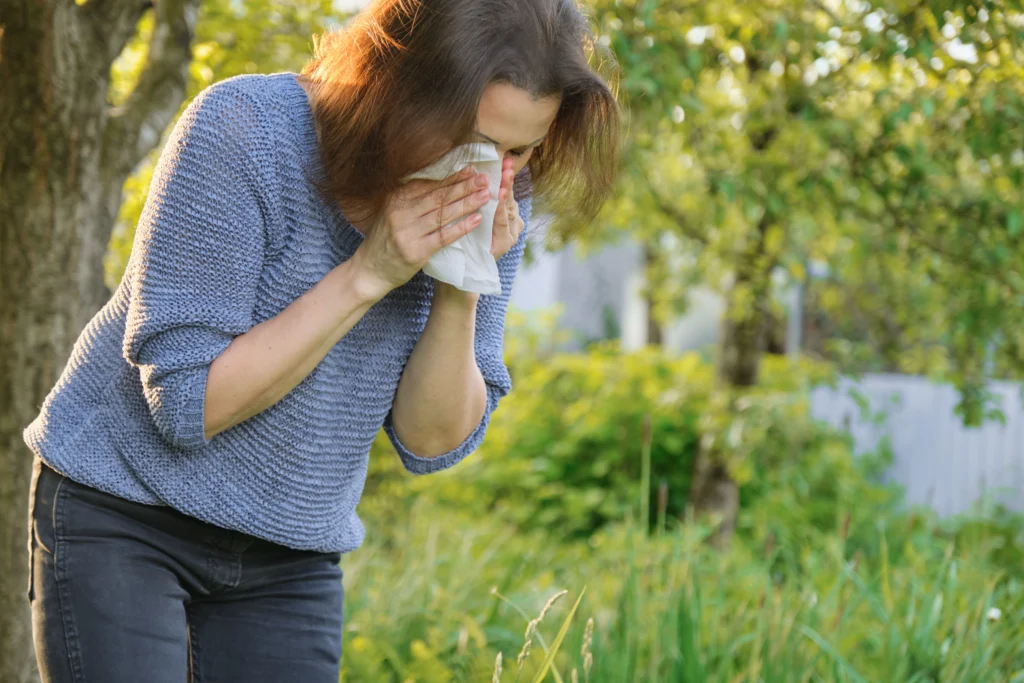Yacht Mold Inspection & Testing Services In Florida
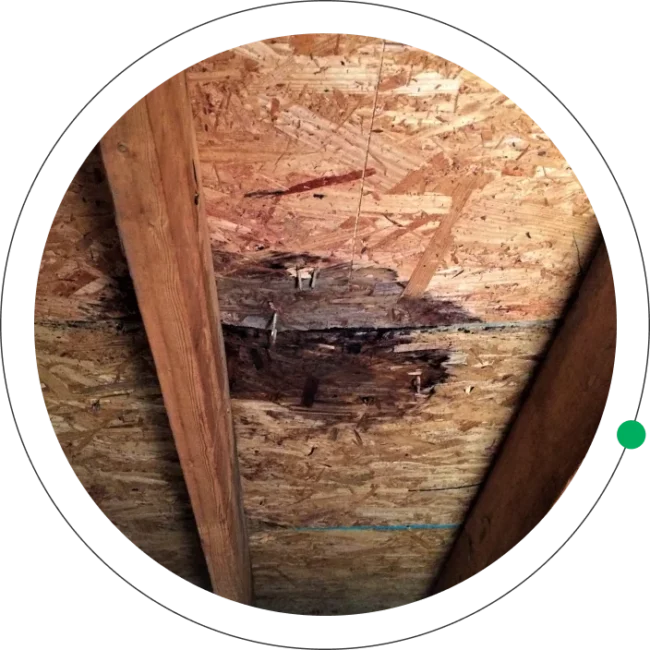
Why are yacht a place prone to mold growth?
Yacht mold is a type of fungus that grows in damp, humid conditions, and your yacht can be a prime target in Florida’s moist climate. Mold thrives in areas with poor ventilation and high humidity, which are common in yachts due to their tight spaces and limited airflow.
You might notice mold as black, green, or white spots or patches on different surfaces inside your yacht. It often appears in hard-to-see places like under cushions, behind panels, or in storage compartments. Mold can not only look bad but also cause musty odors and affect the air quality, making your time on the yacht less enjoyable and possibly leading to health issues.
To fully protect your yacht, it is crucial to schedule a mold testing. Our team at ETA Mold specializes in identifying and testing for mold in all types of marine environments.

Common signs that indicate the presence
of yacht mold are

Musty Odor
If you notice a strong, musty odor when you open up your yacht after it’s been closed for a while, mold could be the cause. Mold testing can confirm its presence.

Visible Mold
Mold often shows up as black, green, or white spots on cushions, carpets, walls, or wood. If you see any of these spots, it’s a good idea to get an inspection.

Discoloration
Stains or discoloration on wood, fabric, or other surfaces may indicate mold growth that can be detected during mold testing.

Peeling or Bubbling Paint
Paint that is peeling, bubbling, or cracking.

Warped or Soft Surfaces
Warping or softness in wood, panels, or other materials can result from mold damage, which can be identified in a mold inspection.

Condensation
Persistent moisture or condensation on windows, walls, or other surfaces.

Dampness
Persistent dampness or wet spots in areas like cabins or storage compartments are clear indicators for mold testing.

Health Symptoms
Increased respiratory issues, allergies, or skin irritation among occupants.

Rust
Rust on metal fixtures or hardware is a sign of excess moisture that could lead to mold. Mold testing can help identify the scope of the issue.

Water Damage
If your yacht has been exposed to heavy rain or flooding, especially after a storm, it’s wise to get a mold inspection. Even if things look dry, moisture can still be hiding in hidden spots and lead to mold growth.
Tips to Identify Yacht Mold
- Constant exposure to water and high humidity levels, both inside and outside the yacht.
- Limited airflow in confined spaces like cabins, storage compartments, and bilges.
- Leaks from the hull, windows, hatches, or plumbing systems.
- Temperature fluctuations cause moisture to condense on surfaces.
- Accumulation of water in bilges, storage areas, or other parts of the yacht.
- Wet or damp items such as ropes, towels, and life jackets are left in the yacht.
- Presence of wood, fabric, and upholstery that can serve as food sources for mold.
- Lack of regular cleaning and maintenance to address moisture and potential mold growth.
- Salty air can contribute to moisture retention and create conditions favorable for mold growth.
- Frequent exposure to rain, waves, and splashes, especially if the yacht is not properly covered or sealed.
Regularly inspecting your yacht and maintaining proper ventilation, insulation,
If you notice any of these signs, scheduling a professional mold inspection is a smart move. Identifying and addressing mold early can prevent larger problems and help maintain your yacht’s condition.
Want to avoid Yacht Mold?
Prevent mold before it takes hold by following these tips and scheduling regular mold testing:
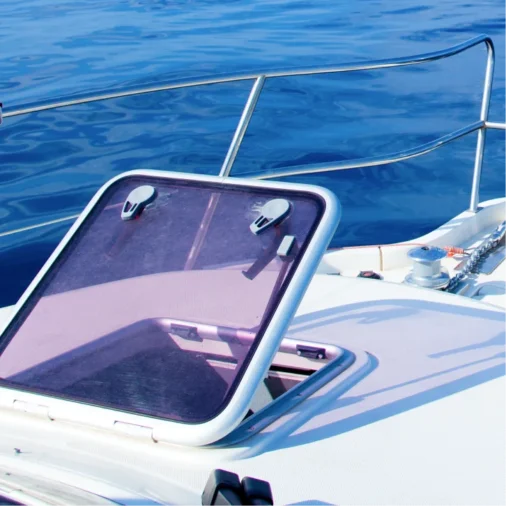
Ensure Proper Ventilation:
- Good ventilation is super important. Whenever you can, open up the windows, hatches, and vents to let fresh air circulate.
- If some areas of your yacht don’t get much air, think about using a fan or a small dehumidifier to keep the air moving.
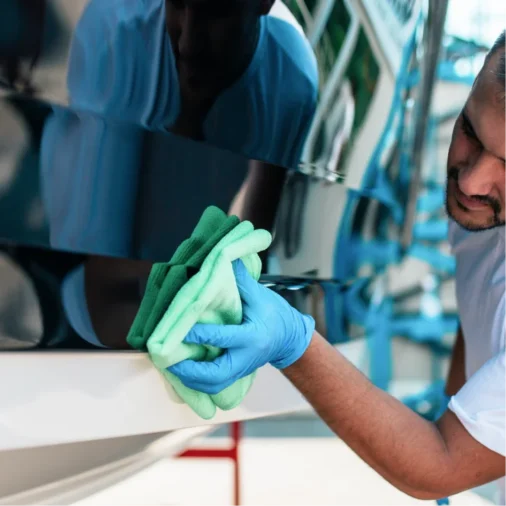
Control Moisture:
- Wipe down wet surfaces, such as decks and interiors, after exposure to water.
- Dry wet items like ropes, towels, and life jackets before storing them on the yacht.
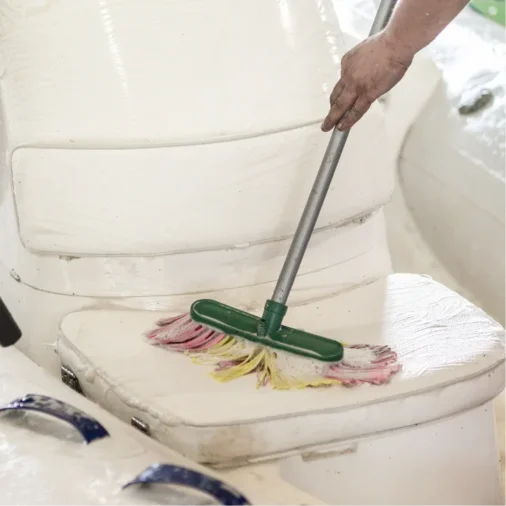
Regular Cleaning:
- Clean the yacht regularly with mold-inhibiting products.
- Pay special attention to areas prone to moisture accumulation, such as bilges and storage compartments.
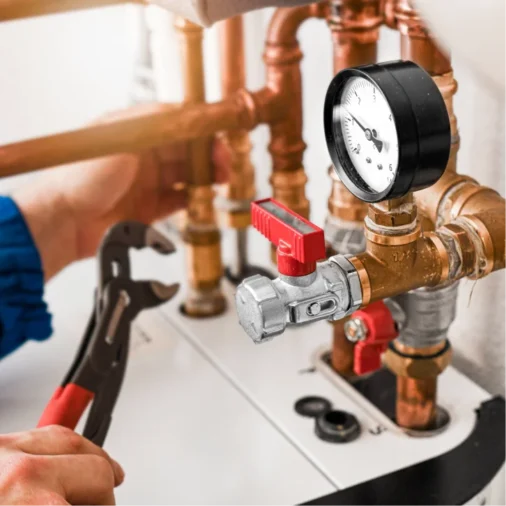
Check for Leaks:
- Keep an eye out for any leaks around windows, hatches, or anywhere else water might get in.
- Even a tiny leak can lead to big moisture problems if left unchecked, so it’s worth fixing them as soon as you spot them.
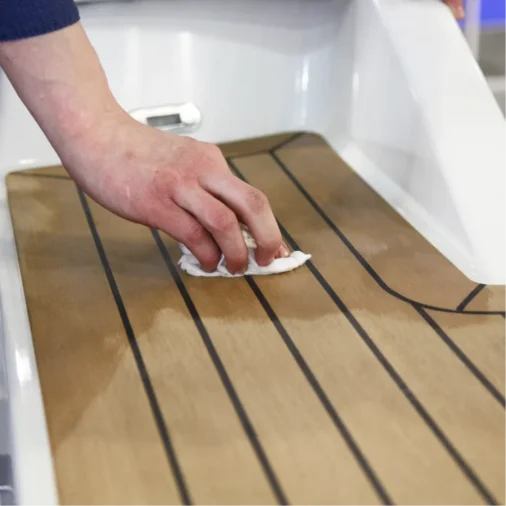
Use Mold-Resistant Materials:
- There are sprays and coatings that help keep mold away. Applying these to your cushions, carpets, and other surfaces adds extra protection.
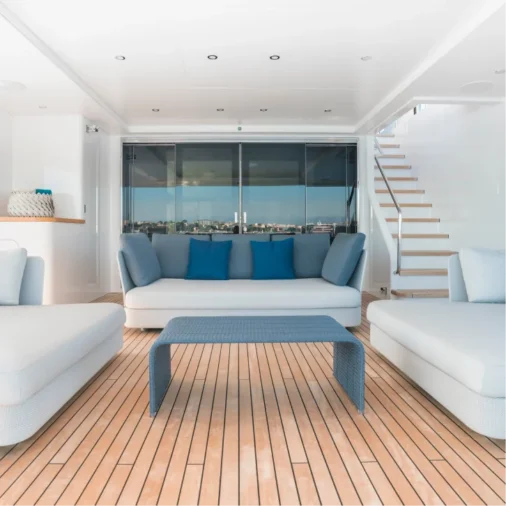
Store Items Properly:
- Make sure all your gear, towels, and clothes are dry before you store them away. Wet items can bring moisture into your yacht, which you’re trying to avoid.
- You can also place some moisture-absorbing packets in storage areas to keep them extra dry.
Choose ETA for Expert Mold Testing
When it comes to your yacht, choosing the right team for mold inspection is essential. At ETA Mold, we understand Florida’s hot, humid climate and its effect on yachts. Our team of experts uses the latest technology to provide comprehensive mold testing services, checking both visible surfaces and air quality to ensure your yacht remains mold-free.
Yatch Mold Inspection & Air
Quality Testing Services in South Florida.
Air Duct Cleaning
& Sanitization
Hvac Cleaning & Sanitization
Air Quality Assessment & Testing
Gallery Hood & Exhaust Duct Cleaning

Mold Cleanup & Remediation
Odor
Removal
Electrostatic
Surface
Disinfection
Dryer Vent & Laundry Duct Cleaning
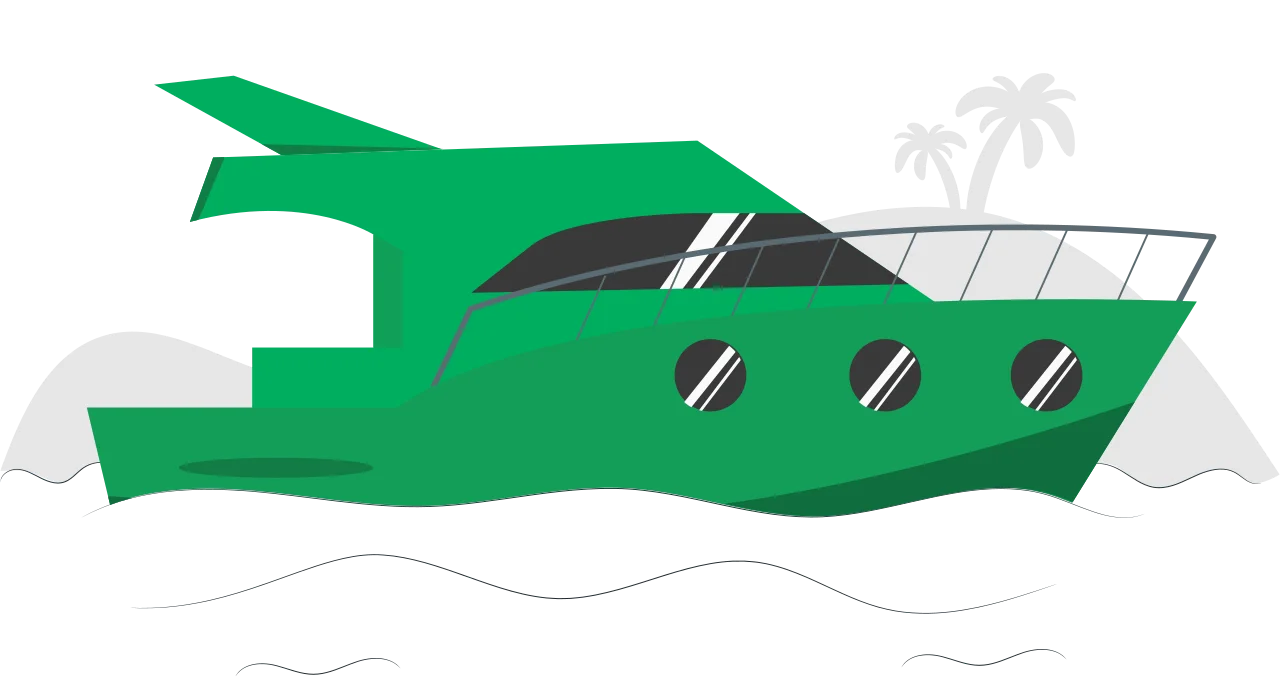
The Mold Inspection Process

DETECTION
We’ll discover the source of infrastructure damage. This is imperative and also the first step in our process.

TESTING
We send all samples to an accredited laboratory. Our labs know this is our priority and will give the most detailed results possible.

ASSESSMENT
Our certified and licensed assessors will compile a comprehensive report providing our documentation and lab analysis. All information comes with a scope of work.

Why Choose Environmental
Testing Agency?
ETA Mold is dedicated to providing thorough mold testing and inspections for yachts in Florida. Our expertise, advanced technology, and commitment to quality ensure that you get the most reliable results and clear, actionable reports. With our professional mold testing, you can keep your yacht safe and mold-free.
Our team is comprised of industry-certified experts with extensive knowledge and experience in environmental testing. We utilize the latest technology and methodologies to ensure accurate and reliable results, making us leaders in the field.
Expertise
We are committed to providing exceptional customer service. Our team is responsive, thorough, and dedicated to assisting clients through every step of the testing process. We prioritize clear communication and tailored solutions to meet your specific needs.
Customer Service
Quality is at the core of everything we do. From rigorous testing procedures to detailed reporting, we ensure that all services meet the highest standards. Our commitment to quality helps clients make informed decisions based on dependable data.
Quality
Licensed, Certified,
and Insured Mold Inspection
and Air Quality Testing Company.

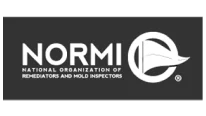



Before Booking an Air Quality Test
and Mold inspection Services
Receive $50 off!

Yacht Mold FAQ’S
Mold can cause health issues, especially if you or your passengers have allergies, asthma, or other respiratory conditions. It’s best to address mold quickly to avoid potential problems.
You don’t have to, but some people prefer to give us space to work. If you want to stick around, we’re happy to explain what we’re doing as we go. Your comfort is our priority!
It depends on the size of your yacht, but most inspections can be completed within a few hours. We’ll give you a more accurate time estimate when we discuss your specific situation.
It’s a good idea to have your yacht inspected at least once a year, especially if it’s stored in a humid environment. Regular inspections help catch any issues early before they become bigger problems.
We test for various types of mold, including common ones like Aspergillus, Penicillium, and Stachybotrys (black mold). Our testing helps identify the specific mold types present, which can guide how to address and remove them.
Yes, mold can potentially damage your yacht’s structure over time. It can deteriorate wood, cause rust on metal parts, and weaken other materials. Addressing mold issues promptly helps prevent structural damage.
Mold can start growing within 24 to 48 hours if conditions are right (high humidity and moisture). However, visible signs of mold might not appear for several days or weeks. Regular inspections can help catch mold early.
It’s best to avoid using your yacht if mold is present, especially if it’s extensive. Mold can affect air quality and your health. It’s important to address the mold problem before resuming regular use.
Mold can start in one area and spread to others if not addressed. It thrives in moist environments, so any damp or poorly ventilated spots can become breeding grounds for mold. A thorough inspection helps identify and contain the issue.
After a heavy rain or hurricane, it’s important to inspect your yacht for any signs of mold. Moisture from these events can lead to mold growth. Contact us for an inspection if you suspect mold, even if it’s just a precautionary measure.
Areas We Serve
In Florida
1. Miami Dade
- Coral Gables
- Coconut Grove
- Miami Beach
- Star, Palm & Hibiscus Island
- Key Biscayne
- Keystone Islands
- San Souci
- Miami Shores
- Pinecrest
- Brickel
- Bal Harbor
- Bay Harbor Islands
- Indian Creek
- Surfside
- Eastern Shores
- Sunny Isles
- Aventura
- Golden Isles
- Golden Beach
- The Roads
2. Broward
3.Palm Beach
- Royal Palm Beach
- Lake Worth
- Lantana
- Boca Raton
- Boynton Beach
- Manalapan
- Singer Island
- South Palm Beach
- North Palm Beach
- Tequesta
- Highland Beach
- Ocean Ridge
- Country Club Acres
1. Miami Dade
- Coral Gables
- Coconut Grove
- Miami Beach
- Star, Palm & Hibiscus Island
- Key Biscayne
- Keystone Islands
- San Souci
- Miami Shores
- Pinecrest
- Brickel
- Bal Harbor
- Bay Harbor Islands
- Indian Creek
- Surfside
- Eastern Shores
- Sunny Isles
- Aventura
- Golden Isles
- Golden Beach
- The Roads
2. Broward
- Bonaventure
- Hallandale
- Miramar
- Hillsboro Beach
- North Lauderdale
- Coconut Creek
- Hollywood
- Sea Ranch Lakes
- Oakland Park
- Sunrise
- Coral Springs
- Parkland
- Dania
- Lauderdale By The Sea
- Pembroke Park
- Tamarac
- Davie
- Pembroke Pines
- University Park
- Deerfield Beach
- Plantation
- Weston
- Fort Lauderdale
- Lighthouse Point
- Pompano Beach
- Wilton Manors
3. Palm Beach
- Royal Palm Beach
- Lake Worth
- Lantana
- Boca Raton
- Boynton Beach
- Manalapan
- Singer Island
- South Palm Beach
- North Palm Beach
- Tequesta
- Highland Beach
- Ocean Ridge
- Country Club Acres
- Jupiter
- Palm Beach
- Jupiter Inlet Colony
- Palm Beach Gardens
- Wellington
- Jupiter Island
- Palm Beach Shores
- Delray Beach
- Palm Springs
- Lake Clarke Shores
- Pelican Lake
- West Palm Beach


